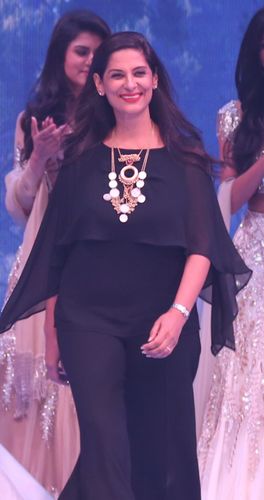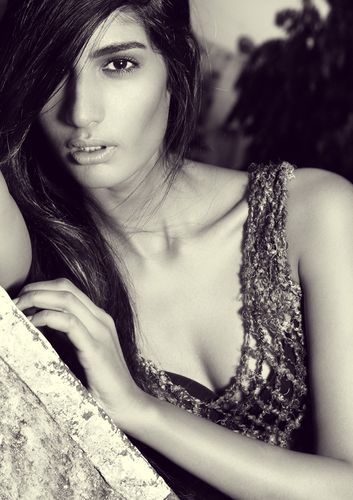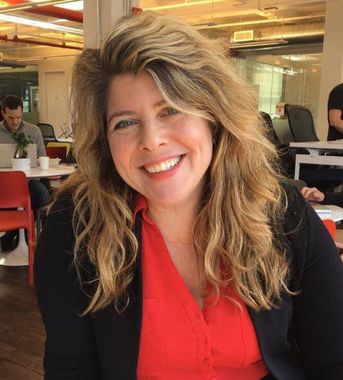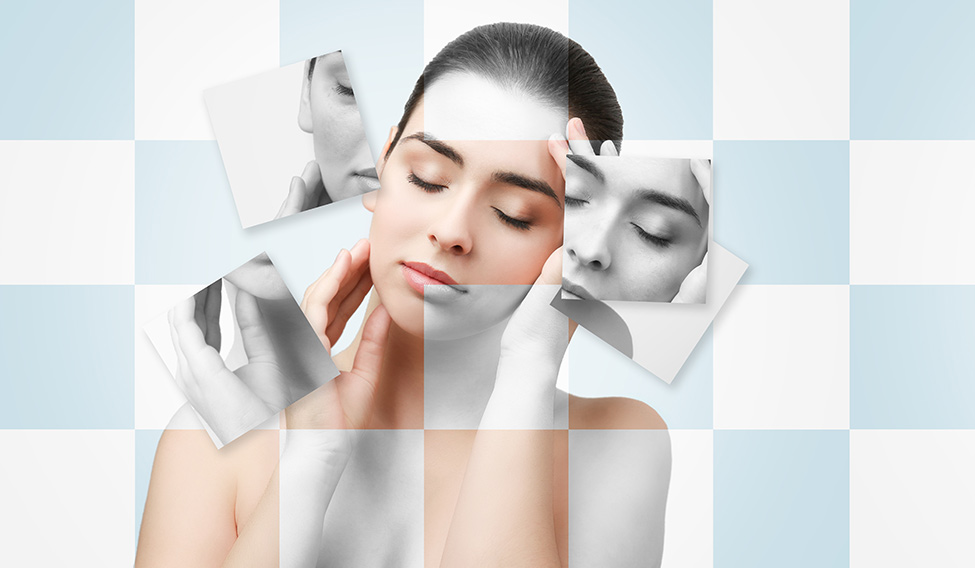I recently read an article which talked about how you stop caring about so many things that don’t matter when you reach a particular age. You no longer care about people’s opinions, especially when they are about you. You no longer care about ridiculous fashion rules, like the one that says you shouldn’t wear a bikini after turning 30. You no longer care about what your ex thinks about you. You realise that your mistakes don’t define you; they are merely pieces in your life that have made you who you are. You also don’t care about fitting in. “Some people spend their whole lives trying to fit in only to realise that those who want to belong are just boring,” says the article. “Why would anyone want to be another sheep among millions of sheep? No thanks. Fly your freak flag and roll solo.”
 Anu Ahuja
Anu Ahuja
For someone who had just turned 30 and on the brink of a new phase of her life, I could identify with the article. Yes, I was no longer the insecure, wannabe girl of my 20s. Drunken parties, experimental hairstyles, wild fashion choices—these all seemed to be things of the past. In some ways, I had “found myself”. I had come to realise who I really was. And that, I came to understand, was not exclusive to me. Increasingly, people are starting to understand themselves and enjoying, even relishing life, no matter what age they are. I spoke to my cousins and friends of various ages and they all told me how they had gained enough confidence to be comfortable in their skin, even if they no longer looked like they did in their 20s.
“I feel I no longer need to make excuses in life,” says my cousin Rupa Jacob, 39. “If I want to sleep early or stay at home and spend time with my children, then that’s what I am going to do. Now, I also feel I am better equipped to handle difficult situations. I have become more responsible with age. Age is truly just a number. Having said that, it is important not to dismiss someone just because they are young. Every individual is different. Don’t judge someone based on their age.”
My friend Anu, who works in digital media and is soon turning 44, agrees. “After I turned 35, I realised that I don’t have to be anybody for anybody,” she says. “I have made peace with my flaws and limitations. In my late teens and early 20s, I was trying to portray an image but now, I am just myself. When I was young, I used to think that those in their 40s are so old but now that I am in my 40s, I don’t feel that anymore. In college, I had big ambitions. I even aspired to come on the cover of TIME. But now I know that is not going to happen and I am okay with it. I am happy sitting with a glass of wine, surrounded by my family. I am happy doing mentally fulfilling work. I love the thrill of change that my job gives me. I have learnt how to balance my work and my family. These are decisions I have consciously made. I wouldn’t want to be anywhere else than where I am right now.”
She tells me how she feels younger than she is. “I feel like I am the cool mother in her 40s. I could go to a teenage concert and fit in, whereas my mother would probably stand out in that crowd. Often my daughter has to remind me to act my age. I know the only legacy I will leave in this world are my children. Beyond that I am not sure anybody will remember anything I do.”
Age changes you at your very core, says my uncle George Mathai, 55, an architect and founder of the design school Terrafirm Global Academy in Kerala. “Very substantial changes take place in your life because of age,” he says. “For me, age has been a process of systematically removing what is unwanted in my life until I get to the core of who I am. It is not just the answers you seek but even the questions you ask in life that change. Earlier, if I asked ‘how do you define success?’, now I might be asking ‘how important is success in life?’ It is not how independent you are, but how inter-dependent you are. Now people say they want ‘freedom’ and ‘independence’. I think it is the most foolish thing you could ask for.”
 Erika Packard
Erika Packard
Yet, we live in a culture that worships youth and looks. In her book The Beauty Myth, Naomi Wolf writes: “During the past decade, women breached the power structure; meanwhile eating disorders rose exponentially and cosmetic surgery became the fastest-growing medical specialty. During the past five years, consumer spending doubled; pornography became the main media category, ahead of legitimate films and records combined, and 33,000 American women told researchers that they would rather lose 10 to 15 pounds than achieve any other goal.”
The media, too, fuels this perception. Every day, you see items in the newspaper about fighting age. (“Purging the body of ‘retired’ cells could reverse ageing”. “Can high-intensity interval training delay the ageing process?” “Umbilical cord blood could slow brain’s ageing”.) According to a report by the Indian Beauty and Hygiene Association, Bain and Co and Google India, beauty and hygiene was a $10 billion market here in 2015 and is estimated to grow at a 10 per cent growth rate to $17 billion by 2020. There seems to be an apparent paradox here. How can the beauty industry be growing if people are increasingly getting comfortable with their age and willing to accept themselves as they are? So, I decided to grab the bull by the horns and talk to people in the beauty industry.
“It is society that makes you feel insecure about yourself,” says Erika Packard, a 27-year-old model in Mumbai. “Today, even younger girls are getting botox treatments. How can it be any different when they idolise people like Kylie Jenner who is only 19 and has already done a host of surgeries. When you are 25, people consider you over the hill whereas, in our parents’ time, 25 was still considered young. But when you are surrounded with people who accept you as you are, you no longer care about age.”
When I ask her if she is scared of ageing, she replies: “I don’t believe in fear. I go with the flow. I was scouted by a modelling agency at the age of 19, and who would have thought that I would become a model? I have come such a long way since then.” She talks about how society and people around her ask her why she is still single at 27: “I don’t care what people say. Yes, all of us want a partner but it happens when it is supposed to happen. Why force something?”
Anu Ahuja, former model and show director who is now in her 40s, says the beauty industry is more about your looks than about your age. “The pressure is to remain fit than stay young,” she says. “There are many commercials where women play mothers’ roles, so it is not correct to say that the majority of work goes to young girls.”
I ask her whether she ever wishes to turn back the clock and live her life as a model in her 20s once again. “It is a yes and a no,” she says. “Physically, you wish you were younger. I would be lying if I said that I don’t look in the mirror and lament my looks. We live in a world where youth and beauty are worshipped. You keep getting bombarded with these small, constant messages that give value to beauty over everything else. I wish that perception would change. But that said, being older mentally and emotionally is the best thing, especially with the peace and maturity it brings.”
 Naomi Wolf
Naomi Wolf
So, in an appearance-obsessed culture, how are these women daring to go beyond their looks? “People live longer today so death anxiety is delayed to a later stage,” says Dr Ashwin Jacob, a psychiatrist based in New York. “Plus, people are more into exercise and yoga, which wards off early dementia. The existential anxiety that was a constant in the pre-antibiotic era is no longer there. Long-term studies show that what is known as the mid-life crisis might be a myth. Erik Erikson [German-born American developmental psychologist and psychoanalyst] has written about the stages of development, in which he says that in every stage of life, you have to negotiate through a crisis. People who cope well with the crisis are more functional and happy. This is called generativity versus stagnation. Today, people are more aware of these things. They have more access to knowledge and are more psychologically savvy.”
That said, Jacob also cautions us not to make such a blanket conclusion. “You can’t just generalise and say that people today are more comfortable with their age. There are so many external variables and it is so difficult to disentangle them. For example, generalised anxiety disorder, where you are anxious because of multiple reasons like job, future, health and retirement, is seen more commonly among the older generation. Biologically, too, a lot of changes take place in the brain as you grow older. The ability to learn new things, for example, decreases. But in most cases, it has been discovered that people with healthy relationships are happier than those without.”
Jacob might have a point. Psychiatrist George Vaillant, who directed, for more than three decades, the Grant Study that followed the lives of 268 Harvard undergraduate men for 75 years, came to the same conclusion as Jacob: there is a strong co-relation between the strength of your relationships and your happiness when you are older. “The 58 men who scored highest on measurements of warm relationships earned an average of $1,41,000 a year at their peak salaries [usually between ages 55 and 60] than the 31 men who scored lowest; the former were also three times more likely to have achieved professional success worthy of inclusion in Who’s Who,” stated an article in The Atlantic, quoting Vaillant.
I got confirmation of this from an unlikely source—my 56-year-old mother who works as a dermatologist in a small town in Kerala. “In the decades that I have worked as a doctor, I have found that people with a healthy family, a loving spouse and children, generally accept their age better than people with problems, who blame their age and looks for their problems. They crib about their younger days,” she says. “Then, I talk to them and tell them that ageing is a natural process. But that said, I must say that the people who come to me for skin-lightening agents and anti-wrinkle creams are happy when the products work. They feel better when they look better.”
Perhaps it is time to agree with writer C.S. Lewis when he says: “You are never too old to set another goal or to dream a new dream.”








